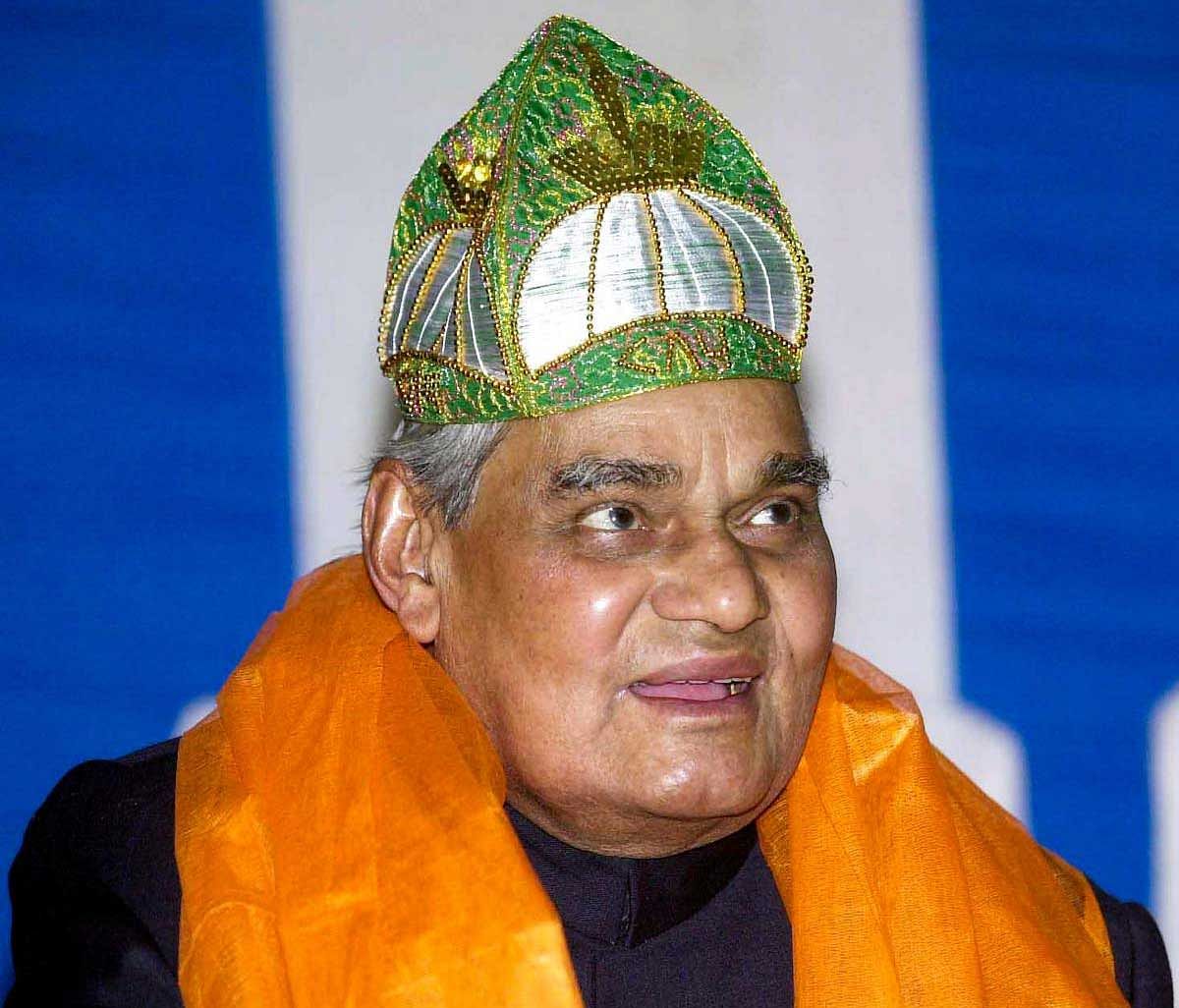
“What do you do in the evenings...Why don't you attend RSS shakha?” This question to a 15-year-old boy in Gwalior on a Sunday morning 79-years-ago changed his life.
To the question from Bhoodev Shastri in 1939, the answer was “nothing in particular”, and thus started Atal Bihari Vajpayee's association with the Rashtriya Swayamsevak Sangh (RSS). The teenager's journey to become the country's prime minister 57 years later in 1996 began this way.
From then on, Vajpayee, a politically sensitive boy who rushed into the Quit India movement along with his elder brother and was jailed for some time, would witness political history in the making. In 1957, he entered the Lok Sabha for the first time and remained in Parliament for around 40 years – 10 terms in the Lok Sabha and twice in the Rajya Sabha – before he hung his boots in 2009.
The Sangh ideology was etched in him but a poet at heart who was influenced by the likes of Bankim Chandra Chatterjee, Sarat Chandra Chatterjee and Premchand, Vajpayee chose a moderate path much to the chagrin of hardliners in the Jan Sangh as well as in the BJP. The RSS, too, was not much happy with him when he was the prime minister.
The 'mukhota'
The power tussle and the ideological fight within the party had prompted cat-calls, too, with the then general secretary K N Govindacharya calling Vajpayee the 'mukhota' (mask), implying that his soft approach is not what the party adheres to and that Lal Krishna Advani was the real power within the party. Vajpayee was upset and unhappy.
He also got a taste of his party leaders when he sought to remove Narendra Modi as Gujarat chief minister after the 2002 riots. His comrade-in-arm Advani once again positioned himself against Vajpayee to support the chief minister. Advani soon rose to become the deputy prime minister, signalling Vajpayee's dwindling stocks.
A master of political messaging, Vajpayee is considered a “moderate” with cross-party friendship in a hardline Hindutva party and knew very well what worked in Indian polity. His now famous "raj dharma" remark after the Gujarat riots reminded Modi not to discriminate against people. He wanted the BJP to be moderate and his insistence saw the party adopting Gandhian Socialism when it was formed in the early 1980s.
But the party was not ready as it ratcheted up the Ram Temple agitation leading to the demolition of the Babri Masjid, which he later described as the saddest day of his life. Even when the BJP-RSS had reservations about Vajpayee, they found him as the acceptable face and without him, they could not move forward. Advani was the first to recognise it and made him the prime ministerial face in 1996, though the former was the architect of the Ram Temple movement.
The first government
Riding on a Hindutva campaign, the BJP first formed a government in 1996 but it ended in 13 days as Vajpayee could not get more parties to his side. But two years later, he had another 13-month tenure before it fell. The 1999 polls brought Vajpayee again to power and this time he created history by completing his term, a first for any non-Congress leader till then.
What worked for Vajpayee was that he surrounded himself with moderate leaders. But an ambitious "India Shining Campaign" in 2004 did not bring him back to power. Despite expectations and predictions, Vajpayee's BJP fell in 2004. There was no Vajpayee in 2009 as he fell ill and his comrade-in-arms Advani couldn't pull it off too.
Proximity to Deen Dayal Upadhyay
Vajpayee had turned whole-time RSS Pracharak in 1947 and his political journey started by editing Rashtradharma and Panchajanya. As he shifted to Lucknow, he came in contact with Deen Dayal Upadhyay, who developed an instant liking for the young Vajpayee.
It was 1951 and Shyama Prasad Mukherjee was forming Jan Sangh. Upadhyaya introduced Vajpayee to Mukherjee and wanted the orator-pracharak to be taken into the party. Mukherjee was impressed with Vajpayee and the latter soon became his assistant.
Advani remembers his first meeting with Vajpayee in 1952: Vajpayee came across as a “young, intense-looking political activist, lean and imbued with youthful idealism and carried around him the aura of a poet who had drifted into politics and something was smouldering in him”.
Vajpayee, who was conferred the Bharat Ratna on his birthday on December 25, 2014, entered Parliament in 1957, winning one of three seats he contested. His interventions in Parliament earned him Jawaharlal Nehru's praise. He would continue to be in Parliament for about 40 years and later become external affairs minister in post-Emergency Morarji Desai government.
As the dual membership of erstwhile Jan Sangh members of Janata Party in RSS rocked Desai government, the Sangh tweaked its strategy to form the BJP in the 1980s. Vajpayee and Advani led the new party formation with the former becoming its first president. He wanted a moderate BJP with Gandhian Socialism as its core but many in his party wanted a more militant approach.
Though he was not enthused, a section in the party under Advani went ahead with a shrill campaign on Ram Temple, which ended up with the demolition of Babri Masjid. Vajpayee weeks later said, December 6, 1992, was one of the saddest days of his life.
Related Links:
